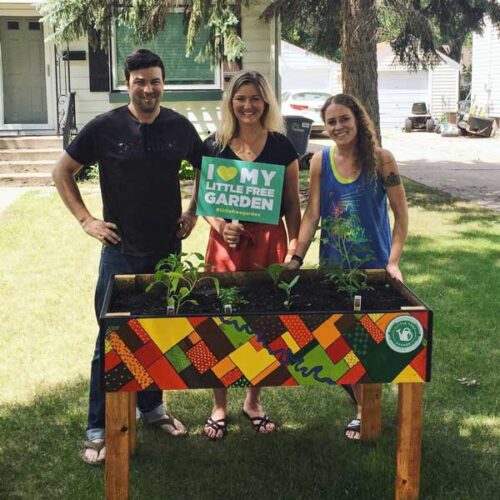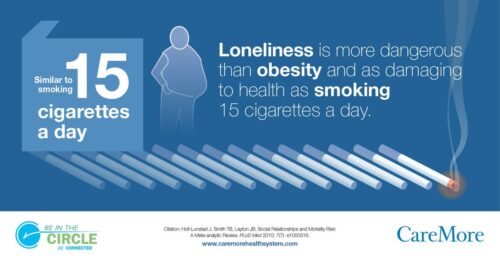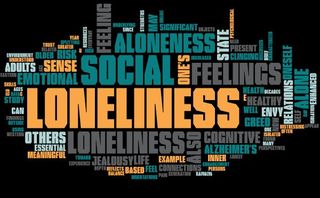Community Building
Being part of a community helps stop loneliness and depressionLoneliness is a public health crisis of epidemic proportions in developed countries like the U.K., U.S., Germany, Australia and Japan. According to global healthcare company Cigna’s 2020 report, three in five U.S. adults (61%) report being lonely – up from 54% one year earlier!

Loneliness is defined as the distressing experience one has when s/he perceive their social relationships to be lacking in quantity and quality. It is not the same as social isolation, which is how often someone connects with friends and family, or solitude, which is choosing to be alone.
An analysis of 148 independent studies, which included more than 300,000 participants, showed that those with greater social connections had a 50% reduced risk of death. Another meta-analysis of 70 independent studies with over 3.4 million people showed that a lack of social connections have worse outcomes than smoking 15 cigarettes a day, obesity, physical inactivity and air pollution.
According to The Economist, “Smaller-scale studies have found correlations between loneliness and isolation, and a range of health problems, including heart attacks, strokes, cancers, eating disorders, drug abuse, sleep deprivation, depression, alcoholism and anxiety.”
Surprisingly, seniors are not the largest demographic facing loneliness. The 2020 Cigna study reported that nearly 8 out of 10 Gen Z’s (79%) and 7 in 10 Millennials (71%) are lonely, compared to 50% of lonely Baby Boomers. Those living in rural communities face more loneliness than those in cities.

(Cigna Survey – 43 is the threshold for loneliness)
What Does Loneliness Have to do with Gardening, Food and Plant Eat Share?

Co-founders, Jeff Knight, Megan Myrdal and Gia Rassier with Little Free Garden no. 4
The best way to improve health, combat loneliness and build community is through gardening and giving – growing and sharing food. According to the Royal Horticultural Society in the U.K., gardening in your front yard has better benefits because you are more likely to interact with neighbors (assuming you live in an urban or suburban area).
This is the perfect place to plant food to share with neighbors, like the Little Free Garden Project in Fargo, North Dakota, is doing. Neighbors there are growing food in raised beds and boxes on their front lawn. Signs on the growing boxes encourage neighbors to help themselves to any of the food.
The multiple benefits of gardening and sharing food include:
- Eases yours and others loneliness and isolation by developing closer social connections
- Helps you feel happier
- You can live longer
- It cultivates gratitude, which can help you feel better physically and mentally
- Lowers blood pressure
- Promotes positive behavior in teens
- Gives you a sense of satisfaction and purpose
- It keeps giving – doing good for others is contagious
- Is a springboard for tackling other community problems
What You Can Do
There are various ways you can grow and share food – and help curb yours or someone else’s loneliness, such as:
- Join a local gardening club and urge them to plant food to share for free with the community, if they are not already doing so. The act of giving and contributing helps connect you even more than just gardening alone.
- Encourage your local hospital, church, senior center, etc, to plant a free food garden. Volunteer to organize it. Even growing a couple herbs in a planter is a good thing to do.
- Please know that you are not alone. If you feel your loneliness is becoming unbearable, walk into your nearest emergency center or text HOME to 741741 – an actual person will respond. If you are in crisis or think you are in crisis (if you think you are, you most likely are), please call the National Suicide Hotline Number 800-273-TALK (800-273-8255). Please reach out – we need you.


